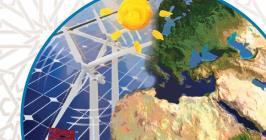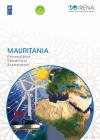

Renewables Readiness Assessment: Mauritania
Newsletter
Le rapport est également disponible en Français.
Mauritania possesses significant renewable energy resources, which could be developed to strengthen the economy and improve access to energy. Solar and wind energy technologies are well suited for integration into the country’s existing network of mini-grids, according to this Renewables Readiness Assessment (RRA) report released by the International Renewable Energy Agency (IRENA) in association with the United Nations Development Programme (UNDP).
Such a transition can be strengthened through regional cooperation in both the Maghreb region and West Africa, with potential for Mauritania to become a renewable energy exporter. Planned investments in wind and solar power, however, are insufficient to keep up with demand growth from the country’s mining sector. Electricity demand is expected to grow by up to 600 per cent between 2010 and 2030, led by industry needs and also fuelled by rising domestic demand.
The report recommends various measures to support large-scale deployment of renewables, including:
- Developing a national policy on renewable energy;
- Updating the electricity code and associated implementing decrees;
- Creating the institutional and regulatory framework to facilitate deployment of renewables;
- Promoting capacity building and research;
- Developing a financial framework.
IRENA’s RRA reports identify actions for countries to overcome barriers to renewable energy deployment, based on consultations among different national stakeholders. While the process helps to shape appropriate policy and regulatory choices, each country determines which renewable energy sources and technologies are relevant and consistent with national priorities.




